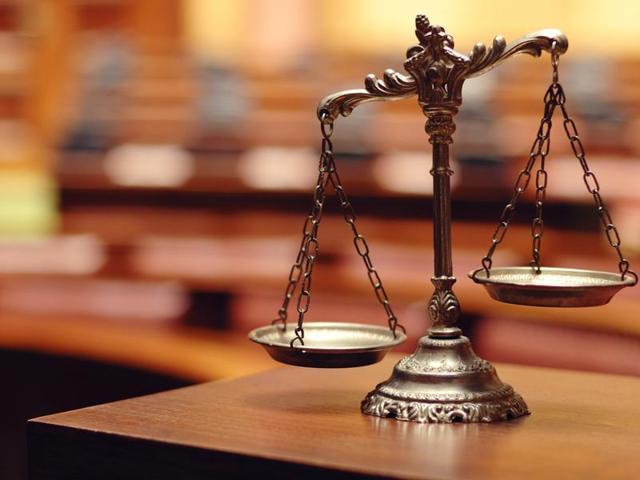This article is written by Jeffy Johnson, currently pursuing B.A. LLB (Hons) from School of Law, CHRIST (Deemed to be University). This is an exhaustive article which deals with Independence of the judiciary and related provisions.
Table of Contents
Introduction
Independence of the judiciary’s main function is to protect the privileges and rights which are given by the limited constitution. It prohibits the legislative and the executive from encroachment upon those rights. Judicial Independence is the ideal of the judiciary that should be independent of any government intervention. This concept is not defined and it varies from jurisdiction to jurisdiction. The cornerstone of this principle is the rule of law. The legitimacy of the judicial system rests on independent judges. The courts of India should not be under any undue influence or control by any government branches or by any private entities. Judicial independence and separation of power are inseparable. The way in which we can facilitate and enhance the independence of the judiciary is by allowing long tenure to the judges of the court. It promotes the decision they make to be accountable to the rule of law and judicial discretion. It is the foundation for the principles of democracy and rule of law. In an independent judicial system, the courts and its judges function freely without any inappropriate intervention. Through independence of the judiciary, it can protect the rights of its citizens and ensure equality to all. Although such a decision will not favour the powerful interest of influential entities. This ideal was based on 18th century England. In some nations, the judiciary maintains checks and balances of the legislature by exercising the power of judicial review. The judicial has the power to dispute resolution, judicial review and upholding the law & enforcing fundamental rights.
Independence of judiciary in the UK
History
Judiciary originated when Henry II had assigned five members to listen to complaints and give remedy in 1178. The role of Lord Chancellor is vital back in the 7th century. The objective of independence of the judiciary from the power of the executive branch did not secure the success over arbitrary Royal prerogative until the Act of Settlement in 1701. Then came the era of William of Orange from 1688 to 1701. Then the Glorious Revolution which laid down the concept of Rule of Law instead of the will of the monarch. In this absence of the written Constitution, it highlighted the relevance of parliamentary sovereignty. Then came the Constitutional Reform Act 2005 and in the next year the new Judicial Appointment Commission. In 2007 the Ministry of Justice was created. Finally, in 2009 the judicial function of parliament ended as the independent UK Supreme Court was established. It got its jurisdiction from the Appellate Committee of the House of Lords. The devolution jurisdiction from the privy council. It was an independently functioning body with a presided by twelve independent judges. They were known as the Justices of the Supreme Court.
Judicial independence in the United Kingdom
Judiciary is independent and separate from the government. This will facilitate the rule of law. This will ensure that the law is enforced impartially and uniformly irrespective who is the authority in power. There should be no undue control by any person. The doctrine of separation of power is important to look into. It segregates the State into primarily three branches that is the executive, legislature and judiciary. This will facilitate checks and balances in the country. Although this doctrine is not followed in the United Kingdom. Here the executive is drawn from the members of the parliament. The Lord Chancellor’s office consists of the three branches fused. The Lord Chancellor who is the member of the House of Lords acts as the head of the Judiciary.
In 2003 the government abolished the position of Lord Chancellor. In this process the Lord Chief Justice head of the judiciary as the President of the courts of England and Wales. This abolished the establishment of Law Lords presiding in the House of Lords and it was introduced to the separate Supreme Court and the new judicial appointments commission.
Provisions
The term judicial independence can be showcased as a traditional one. It is born from the vital components of England’s constitutional arrangement. It is an essential feature of the rule of law. It is one of the most important pillars and it is required throughout. This did not have legal backing unless the Constitutional Reform Act (CRA) was formed in 2005. The questionable factor is that in the absence of a written constitution how can it deal with judicial independence. The constitutional principles are highlighted in a limited scope which is monitored by the judges during the constitution as the Parliament is considered to be authoritative and supreme. This is within the very concept and acts as a protective barrier. These legislations can be recognised and are important with matters concerning judicial tenure, remuneration and so on and not dealing with judicial independence. It has relied mainly on conventions, traditional knowledge and on the Lord Chancellor as these are the parts of judicial and executive responsibility. As these act as protectors and they safeguard independence throughout.
Independence of judiciary in India
In India, Article 124(2) the judges are appointed by the President in consultation with the judicial authority. Every judge is guaranteed with the security of tenure. The judge of the Supreme Court or High Court will be removed only on the account of misbehaviour or incapacity. Article 124(4) only the President has the authority to remove the judge in the form of impeachment. The administration expenses of the judiciary come from the consolidated fund of India. The judges are not allowed to plead after their tenure is over before any court. The conduct of the judges can be discharged if their duties are discussed in the legislature. The farmers of the Constitution instituted an independent and impartial judicial system. Although the judiciary in its functional image is not completely independent. It lacks in its implementation but it’s more textual in nature. The transfer of judges also affects the independence and functioning of the judiciary. There is no effective mechanism to protect against the abuse of the power to transfer by the government. Structure of courts in India is at three-level that is the district court, the high courts and the supreme court.
Union of India v. S H Sheth (1978) 1 SCR 423 also known as the Sankal Chand’s case. In this case, the apex court’s majority stated that prior consent is not required while transferring the judges. Although Justice Bhagwati and Justice Untawalia gave dissenting judgements. The Janta Government repealed the changes in the 42nd Amendment. The statutory conventions for the appointment of judges were recognised by Mrs Gandhi had superseded Justice Khanna, the senior-most judge due to his judgement in the A.D.M. Jabalpur v. Shukla 1976 AIR 1207, the Habeas Corpus. Then the removal of Justice O. N. Vohra, Additional Judge of the Delhi High Court because he gave fair judgement against Mr Sanjay Gandhi. All this shows the cost of being transparent and fair there. The independence of the judiciary is always subject to the exploitation of the powerful, as it is vulnerable. The salary and the allowance of the judges are secured in the India Constitution. But there is no time schedule for its revision.
The independence of the judiciary has suffered erosion because of the practices which have been carried out by the Government. The retired judges can also be used to improve the condition of the judicial system. In the case of Orissa v. Sudhansu Sekhar Mishra AIR 1968 SC 647, it highlighted that only for good reason if the High Court finds it suitable will it have authority to spare the period agreed of services of any of the officers under the control for filling up. Such executive posts as it may require the service of the judicial officer. The government stated that the High Court judicial officers should not be permitted to acquire the interest in the Secretariat. The reforms on paper will not be effective unless the judicial takes initiatives to make implementation into reality.
Related provisions
The prime law of the land is the Indian Constitution and all other laws are formulated on the basis of this. Judiciary is the most important branch of law and there is no substitute for this as they impart justice, social economic and political will. It should ensure the quality of states and equal opportunity to all. Judiciary can be therefore considered as an artistic function and social-economic distinction. According to Granville Austin Judiciary has been an arm of revolution with respect to the social-economic domain. It showcases the need for social justice that needs to be provided to the laymen. With respect to the judicial function, it is very different and it requires justice to minority workers, gender justice and equal justice among the unequal in the society. Judiciary has the role of providing social justice to all. No judge should adopt any negative role with respect to this
The role of the judiciary is not that of a spectator but is much more and should act as an active participant within the purview of the judicial process. It is more of a goal-oriented approach. It should be based on constitutional values. The Constitution of India should take steps and also take measures to ensure the independence of the judiciary. It should be backed by constitutional parliamentary sovereignty. The provision for ensuring the independent position of the Judges of the Supreme Court and thus the High Courts. The judges of the Supreme Court and thus the High Courts need to take an oath before entering once that they are getting to faithfully perform their duties without fear, favour, affection, ill-will, and defend the Constitution of India and thus the laws. Recognition of the doctrine of constitutional sovereignty is inherent to this oath. The tactic of appointment of judges also ensures the independence of the judiciary in India. The judges of the Supreme Court and the High Courts are appointed by the President. The Constitution of India has made it obligatory on the President to make the appointments in consultation with the absolute best judicial authorities. It takes the recommendation of the cabinet. The constitution also prescribes the required qualifications for such appointments. The decision should be unbiased and not on any political pressure.
Suggestions and reforms
Independence of Judiciary can be made true if the following suggestions and reforms can be implemented: The judiciary should not be a puppet in the hands of the executive or the legislature. It should possess an independent identity of its own. It should showcase autonomy in its functioning. The mechanism of appointment of judges should be very transparent. There should not be any malpractices. The judges should be well-learned and should have the capacity to deliver judgements. They should also have working experience in the field of law. The judges should be entrusted with a long tenure and security of service. This will ensure that they deliver judgement without any influence, fear or impartiality. The judges should be provided with appropriate salary and allowance also other perks such as accommodation and so on. There should be debarred practice after retirement. They enjoy the power to punish for contempt of court. The judiciary also has vast jurisdiction. It acts as the interpreter of the constitution and the protector of the fundamental rights. They also have to determine the constitutional validity of all laws.
Conclusion
The Indian Constitution facilitates that the judiciary acts independently. In order to attain fair justice, there is a need for independence of justice. Justice should be fairly dispersed without any interference. There should be no biases and the judges should take due care, reasonableness and rationality in making judgments. Independence of the judiciary is the need of the hour and there should be proper operations and influence by the other organs that are executive and legislature. There should be justice imparted without any other undue influence by any third party other than the once imparting justice.
References
- http://www.legalservicesindia.com/law/article/1339/10/Independence-and-Accountability-of-Judiciary-in-India-U-K-#:~:text=With%20the%20passage%20of%20Constitutional%20Reform%20Act%20of%202005%20in,achieving%20greater%20independence%20of%20judiciary.
- https://mckinneylaw.iu.edu/iiclr/pdf/vol10p245.pdf
- https://www.parliament.uk/about/living-heritage/evolutionofparliament/parliamentaryauthority/revolution/collections1/parliamentary-collections/act-of-settlement/#:~:text=Description%20%3A,Act%20was%20extended%20to%20Scotland
- http://www.legislation.gov.uk/ukpga/2005/4/pdfs/ukpga_20050004_en.pdf
LawSikho has created a telegram group for exchanging legal knowledge, referrals and various opportunities. You can click on this link and join:
 Serato DJ Crack 2025Serato DJ PRO Crack
Serato DJ Crack 2025Serato DJ PRO Crack











 Allow notifications
Allow notifications


